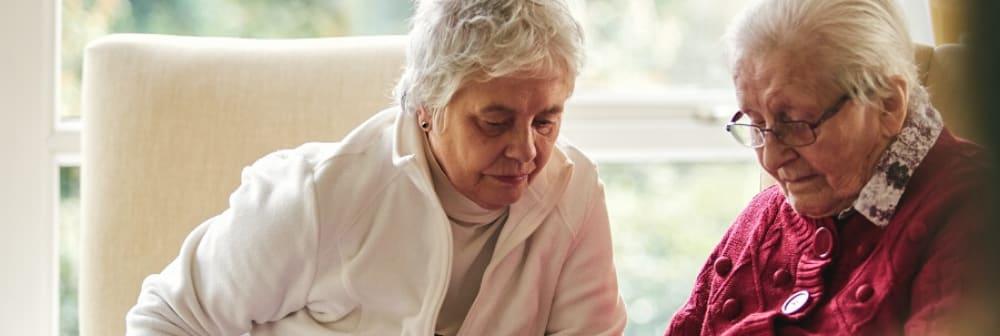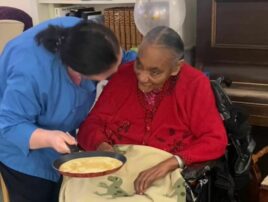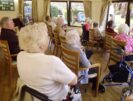
Thursday 11th June 2020
Prayer Week 2020 - 11th June - Dementia
Louise Morse is a writer and speaker for Pilgrims’ Friend Society and has a Master’s degree examining the effects of dementia care on families. She explores the challenges facing those who care for someone with dementia
A wife whose husband had died of dementia raged to me that more should be published about it, yet the reality is that although much information is available, we don’t want to know about dementia until it impacts our lives.
What is dementia? It’s a word used to describe the symptoms of the disease. They include loss of memory, inability to plan and reason, use language, and look after oneself, and more. They are the result of damage to the brain from Alzheimer’s disease, Vascular disease (often a combination of both), Lewy Body, Pick’s Disease, Posterior Cortical Atrophy, and around 100 other causes.
Usually a close family member becomes a caregiver, a role that can be so demanding it results in a syndrome known as dementia caregiver burden (DCB). Studies show it can be so severe that it affects the caregiver’s physical, as well as mental health. The biggest components of all DCB are negative emotions, such as grief and stress, and often the strain of the continual vigilance necessary to keep the person safe. For example, being constantly watchful that the person doesn’t open the front door and
walk into the road. In Dementia: Frank and Linda’s Story (Lion Monarch, 2010) you will read how, in the middle of the night, Frank mistook the glass fronted bookcase in the hall for the bathroom door and tugged at it until the bookcase toppled forward and pinned him to the ground.
Caring single-handedly is hugely demanding and exhausting, yet state social care is not readily available from cash-strapped councils and paying private agencies can be costly. In many cases churches and friends and relatives rally around, helping in dozens of practical ways. The best support always includes empathy; listening attentively to the caregiver and reassuring them, subtly, that they are doing a good job. Feelings of inadequacy, failure and guilt are usually part of DCB, largely because of the frustration and difficulty in helping the person to feel better, or improve his or her condition in a meaningful way.
Two thirds of people living with dementia are cared for in their own homes, but circumstances often create a tipping point where they need residential care. Sometimes it is because the caregiver’s health has deteriorated, or because the person cannot be cared for safely at home and needs the more concentrated attention that a care home provides. Staff in a care home work in a team and encourage one another. They come into work after a good night's sleep, and don’t have to cope with laundry, cleaning, or cooking. Most importantly, they are trained to understand dementia and individual’s needs and behaviours, and don’t have the emotional bonds that underlie the emotions that comprise DCB.
We have a unique way of caring for those with dementia in Pilgrims’ Friend Society homes. It’s called, The Way We Care, and includes specially trained ‘Hummingbirds’, carers who spend short concentrated times and relate right in ways congruent to each one. The aim is to keep them engaged and happy and support their Christian faith. Pastor Paul Clark chose our Evington Home for his wife even though it meant a 50-mile round trip to visit, something he did almost daily. He said,
My wife was treated with great love and respect. The quality of care she received was beyond measure. My gratitude to Evington is greater than words can say, but if it were within my power, I would grant them an Award for Excellence.
Today, please pray:
- For those who have been newly diagnosed with dementia, for wisdom for the way forward and peace
- For situations where a family caregiver is coping at home – for strength, the joy of the Lord, and hope for the future in Christ
- For a good social care funding plan so that caregivers can be supported. Much has been promised but it hasn’t materialised
Find out more about our charity's The Way We Care approach to caring for older people with dementia here





































